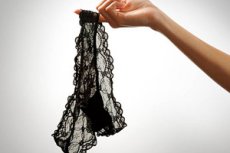New publications
Reusable menstrual products: what stops female students from using them?
Last reviewed: 09.08.2025

All iLive content is medically reviewed or fact checked to ensure as much factual accuracy as possible.
We have strict sourcing guidelines and only link to reputable media sites, academic research institutions and, whenever possible, medically peer reviewed studies. Note that the numbers in parentheses ([1], [2], etc.) are clickable links to these studies.
If you feel that any of our content is inaccurate, out-of-date, or otherwise questionable, please select it and press Ctrl + Enter.

Interest in reusable menstrual products (RMPs) – reusable pads, cups, panties and the like – is growing due to potential environmental and economic benefits. However, uptake of MMPs remains limited: the decision to choose a product is often based not on price but on emotions, comfort and hygiene, according to a new review of research published in BMJ Open.
Research methods
The authors conducted a systematic review of studies on knowledge, experience, and perception of MMS among female university students and identified barriers to use. Based on the screening results, 10 studies were included. The quality of primary studies was assessed using MMAT-2018/2015, and confidence in qualitative conclusions was assessed using GRADE-CERQual. Search strategies covered large databases (including MEDLINE and Embase) with a cutoff date of up to 2023, disagreements in the selection of articles were resolved by discussion. Synthesis was thematic (narrative) with barriers/motivators mapping.
Key Results
- Hygiene concerns and living conditions are key barriers. Female students doubt the “cleanliness” of MMS, worry about washing/drying and storage, especially with limited access to convenient and private sanitary conditions.
- Comfort and fear of leaks. Wearing discomfort and concerns about reliability are often cited as deterrents to switching from disposables. (Similar to earlier MMS reviews.)
- Stigma and lack of information: Topical taboos and knowledge gaps about the proper use/care of MMS reduce willingness to experiment.
- Finances are more of a plus than a minus. None of the included studies reported negative perceptions of the financial side of MMS; on the contrary, savings were often mentioned as a motivation.
Interpretation and clinical conclusions
The review shows that rational motives (cheaper and greener) often lose out to practical and emotional barriers (hygiene, comfort, privacy). Therefore, simply informing about the benefits is not enough. For student and primary health services, this means the need to:
- targeted training on the selection and care of MMS;
- taking into account infrastructure (accessible and private conditions for washing/drying);
- destigmatizing - safe communication channels, demonstrations, "trial kits" and peer-to-peer support.
Authors' comments
The authors emphasize that campus menstrual health programs must go beyond “cheaper and greener” to directly address real pain points: fear of “unhygienic conditions,” concerns about leaks, and lack of privacy. They propose integrating education and infrastructure solutions, co-creating interventions with students, and paying attention to cultural attitudes and stigma.
